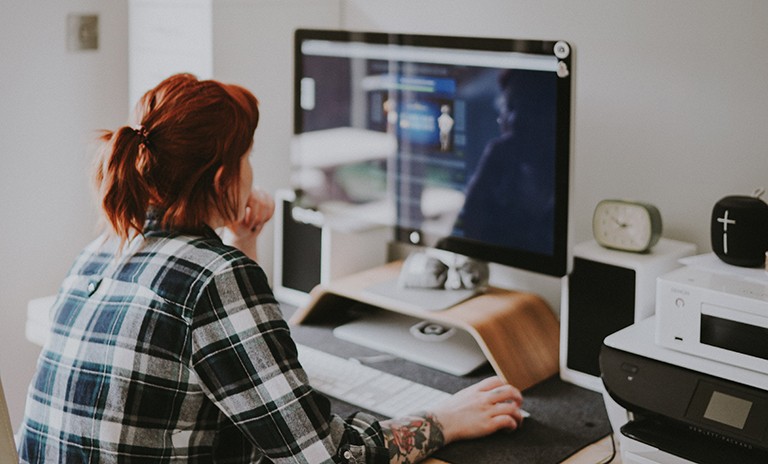Cyber hygiene at home became more important than ever during COVID-19
In a world where folks who had kept their modem in their hallway closet suddenly had to work or study from home, the need to convert personal networks to the last line of cyber-defence came as a shock.
“When COVID hit, we had to quickly pivot to a work- or learn-from-home environment, and that presented us with a new challenge,” says Alex Aragona, Concordia’s executive director of application portfolio management and chief information security officer. “How do we expand security perimeters to thousands of employee and student networks with varying levels of security?”
In lightning speed, Concordia shifted towards cloud-based apps like Microsoft 365 and the adoption of multi-factor authentication for a wide variety of public facing systems.
While Concordia has worked hard to adapt and continues to evolve to the new cybersecurity environment, Aragona shares a few tips to help you secure your personal network connections.
Set up a secure private network
Working and learning where you live can have some benefits: the ability to do laundry on lunch breaks, start preparing supper, hang out with the cat. It also has some complications, like ensuring you’re working over a secure connection.
It’s easier than you think. Here are some helpful suggestions:
- Change your home Wi-Fi name and password from the default settings
- Make sure your network name doesn’t have any personal details
- Use a unique and strong password; passphrases work well
- Create a separate Wi-Fi network for guests and smart devices for an added layer of protection from your more sensitive information
- Make sure all devices on your network are up to date — tablets, computers, laptops, smartphones, routers
- Limit area coverage by placing your router in the middle of your living space; the hallway closet might not be the best idea
Protect yourself when using public Wi-Fi
You can barely walk down the street these days without being prompted to connect to public Wi-Fi. Bus stops, coffee shops, even Concordia — it can be found almost everywhere. While this is convenient and can save on data usage, there are a few quick steps to reduce risks:
- If you’re in a Wi-Fi zone but don’t need the internet, turn off your Wi-Fi setting
- If possible, use a VPN
- Watch out for shoulder surfers — just as you shield others from seeing your banking PIN, make sure no one is watching when you’re putting in your passwords
- Try to only visit HTTPS sites or sites that display the padlock in the URL field; these sites are more secure than regular HTTP sites
Be safe while being social
Instagram, Twitter, TikTok, Facebook and others are great tools for sharing your life with the world, but social media is also an easy way for cybercriminals to learn more about you — cue the creepy music! So make sure to take a few precautions before you post.
- Use a complex password or, even better, a passphrase for each account
- If possible, enable multi-factor authentication to provide an added layer of protection
- Review your privacy setting often to control who sees what
- Cute quizzes that ask for your favourite colour and your birthdate aren’t so cute when they help provide cybercriminals with possible answers to your security questions
- Analyze pictures before you post — backgrounds can provide more details about your life than you might like
Always keep your systems up to date
Wait, didn’t we already mention this? Well, it’s important.
While it may be annoying or easy to forget, keeping your systems up to date is equally as important as having the most up-to-date gadget or trendy shoes. Consider setting up automatic updates; if they happen at inconvenient times, set a reminder to turn on your device when you go to sleep so your systems can update during your off-hours.
Want to boost the security for your Concordia accounts? Opt in to multi-factor authentication.
 Photo by
Photo by 

